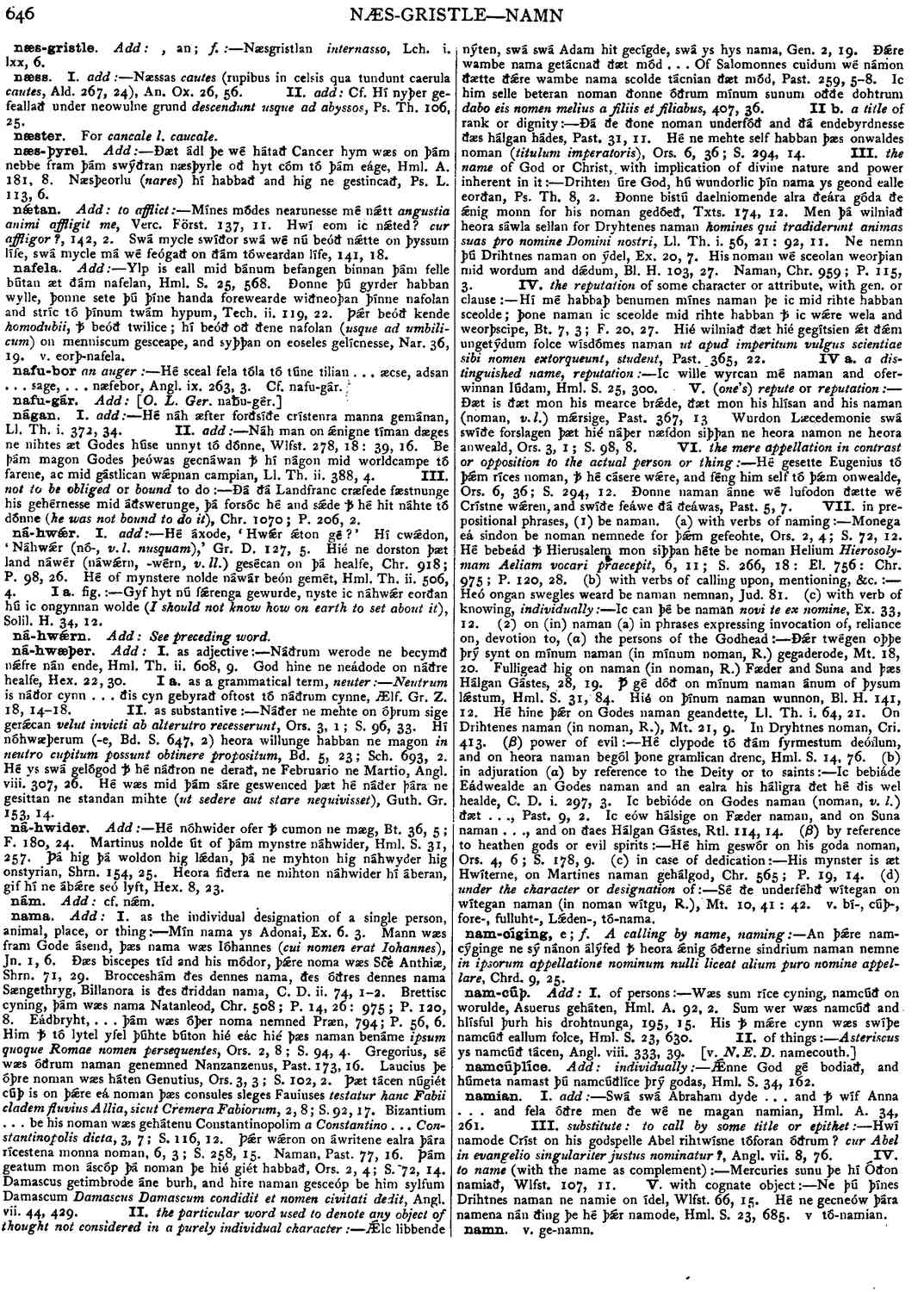ná-hwæþer
-
Náðrum werode ne becymð nǽfre nán ende,
- Hml. Th. ii. 608, 9.
-
God hine ne neádode on náðre healfe, Hex. 22, 30. I a. as a grammatical term, neuter :--
Neutrum
is náðor cynn . . . ðis cyn gebyrað oftost tó náðrum cynne,- Ælf. Gr. Z. 18, 14-18.
-
Náðer ne mehte on óþrum sige gerǽcan velut invicti ab alterutro recesserunt, Ors. 3, 1; S. 96, 33, Hí nóhwæþerum (-e, Bd. S. 647, 2) heora willunge habban ne magon
in neutro cupitum possunt obtinere propositum,
- Bd. 5, 23; Sch. 693, 2.
-
Hé ys swá gelfigod ꝥ hé náðron ne derað, ne Februario ne Martio,
- Angl. viii. 307, 20.
-
Hé wæs mid þám sáre geswenced þæt hé náðer þára ne gesittan ne standan mihte (
ut sedere out stare nequivisset
),- Guth. 153. 14.
Bosworth, Joseph. “ná-hwæþer.” In An Anglo-Saxon Dictionary Online, edited by Thomas Northcote Toller, Christ Sean, and Ondřej Tichy. Prague: Faculty of Arts, Charles University, 2014. https://bosworthtoller.com/55769.
Checked: 0